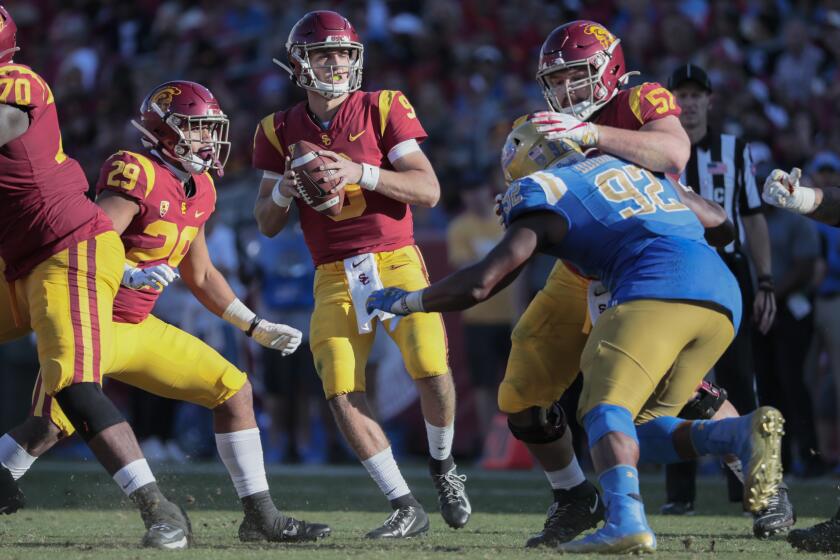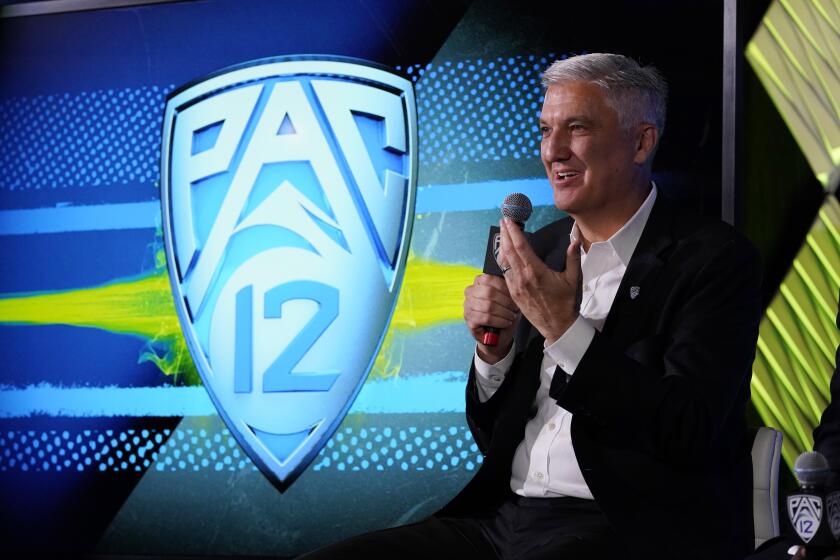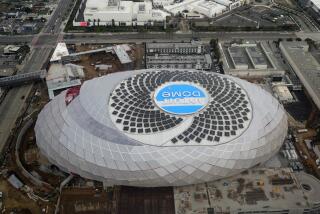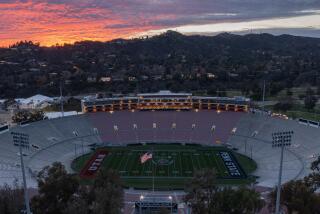USC to sell beer and wine during home football games at the Coliseum
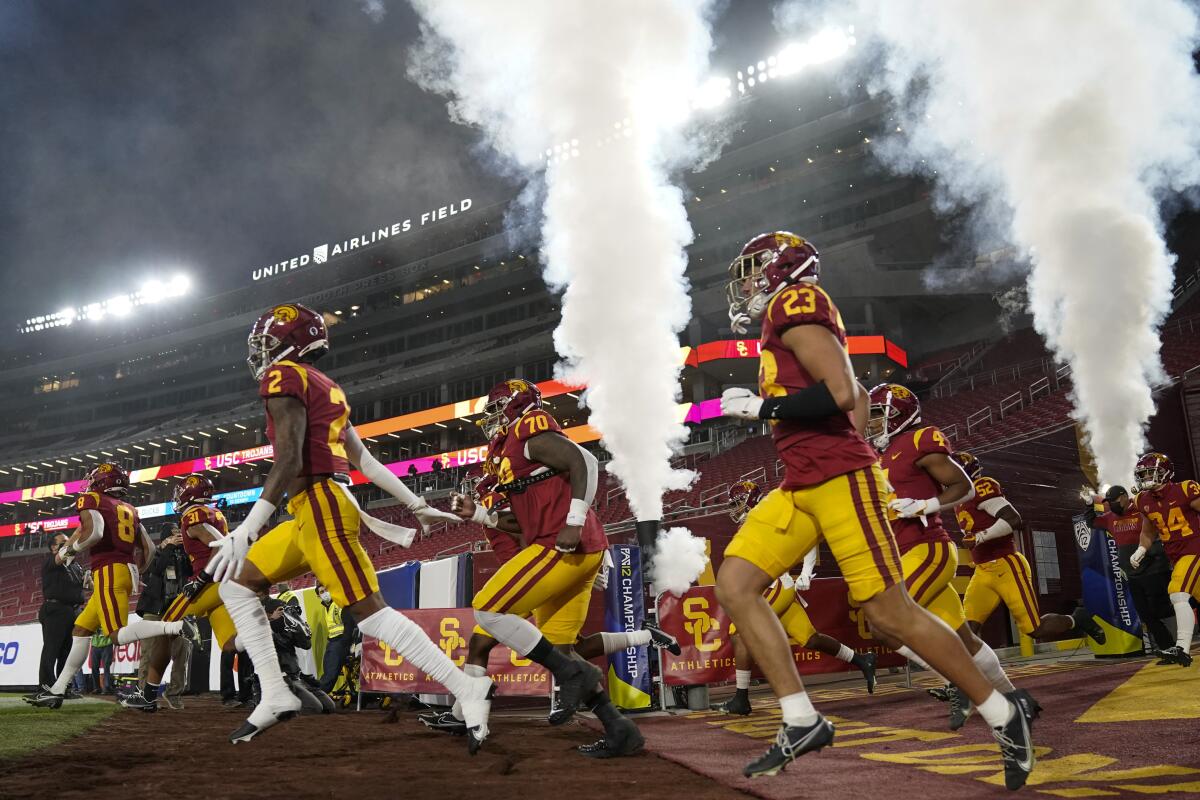
When the Coliseum reopens to USC fans this fall, theyâll be able to toast their long-awaited return with an adult beverage.
The universityâs athletic department announced Thursday it will expand beer and wine sales to all fans this season for the first time since 2004, when USC followed up a national championship season with a ban on the sale of alcoholic beverages in an attempt to curtail bad behavior in the stands.
An end to that 17-year prohibition had been in the works since before the outset of the pandemic, as USC searched for ways to improve the game-day experience at the Coliseum. A season of empty stands â and losses in revenue â only increased that urgency.
Kedon Slovis, Courtland Ford and Tahj Washington are among the USC players who will be watched closely as the Trojans open preseason football workouts Friday.
Seven other Pac-12 schools were already set to sell beer and wine in their football stadiums this season, including UCLA, which announced its alcohol sale plans last week. USC has in recent years sold alcohol to donors in the Coliseumâs Scholarship Tower and throughout its club seating, while the Rams sold alcohol to all fans during the four seasons the team spent at the Coliseum.
USC will also sell beer and wine at the Galen Center when basketball season tips off in November.
âAs we planned for the return of fans to the Coliseum in 2021, it was a priority to create an even greater game-day experience than before the pandemic,â USC athletic director Mike Bohn said. âWe are excited about these enhancements, which ensure that attending a USC game at the Coliseum is a safe and enjoyable experience that matches our spectatorsâ expectations in the Los Angeles marketplace.â
Beer and wine sales wonât be the only change this fall at the Coliseum.
Tailgating will also be noticeably different. A state-wide ban on tailgating out of cars in state-owned lots like those outside of the Coliseum means tailgating will be significantly more limited during the upcoming season â and perhaps beyond. USC fans must enter a lottery to purchase tailgating passes ahead of the season for $496 and will be required to secure reservations when attending on-campus tailgates, which wonât open on game days until six hours before kickoff.
Times writers J. Brady McCollough and Ryan Kartje discuss what their sources are saying Pac-12 fans can expect as conference realignment reshapes the college football landscape.
USC expects to take a financial loss due to the new changes to its parking and tailgating access, a person familiar with the decision told the Los Angeles Times. But the addition of alcohol sales offers a means to recover some of that lost revenue.
When USC first banned alcohol sales in 2004, it was one of the last in the then-Pacific 10 Conference to do so. Steven Sample, the universityâs president, wrote in a letter to USC supporters at the time that the ban was in response to âan escalation in the rude behavior of fans, rudeness that is almost always exacerbated by alcohol consumption.â He hoped to make the Coliseum more âfamily friendly.â
âPeople were coming to make this a beer party rather than drinking some beer while watching the game,â Sample said in 2005.
In a release announcing its reversal, USCâs athletic department cited data that in-stadium alcohol sales, along with proper safety and security measures, âincrease the probability of responsible drinking and fan behavior by cutting back on dangerous levels of alcohol consumption at pre-game tailgating.â
Inside the stadium, fans will be limited to two alcoholic beverages per transaction, while beer and wine sales will conclude at the end of the third quarter.
For now, thereâs no cap on how many fans will be allowed to attend games this fall. USC announced in June the Coliseum will return to full capacity. But that was before the spike in COVID-19 cases across Southern California.
More to Read
Go beyond the scoreboard
Get the latest on L.A.'s teams in the daily Sports Report newsletter.
You may occasionally receive promotional content from the Los Angeles Times.

